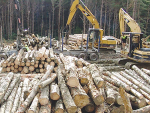A joint venture between the Government and private sector companies, aiming to get emissions reduction tools into Kiwi farmers’ hands sooner, continues to attract support.
AgriZeroNZ is a world-first public- private partnership with the stated ambition to ensure all farmers in New Zealand have equitable access to affordable, effective solutions to reduce biogenic methane and nitrous oxide emissions, supporting a 30% reduction by 2030 and drive towards ‘near zero’ by 2040.
Last week, Bank of New Zealand (BNZ) became the latest business to join the growing line-up of private sector companies backing AgriZeroNZ. Announcing the new shareholder, Todd McClay, Minister for Agriculture & Trade, confirmed the Government would match BNZ’s $4 million investment, boosting AgriZeroNZ’s funds by $8 million to total $191 million.
Since being established in February 2023, the joint venture (JV) has committed more than $29 million across 10 “high impact opportunities to bring emissions reduction solutions to market for Kiwi farmers”. This includes a methane-inhibiting bolus, novel probiotics, methane vaccine development, and low emissions pasture.
BNZ joins The a2 Milk Company, ANZ Bank New Zealand, ANZCO Foods, ASB Bank, Fonterra, Rabobank, Ravensdown, Silver Fern Farms and Synlait with a combined 50% shareholding of the JV. With the Government’s increased investment, it owns the remaining half through the Ministry for Primary Industries (MPI).
AgriZeroNZ board chair Sir Brian Roche says this provides a welcome boost in funds to achieve the JV’s ambition and maintain the multibillion-dollar agricultural export trade.
“I’m pleased more of the private sector is joining us to help get practical tools into farmers’ hands.
“New Zealand farmers are highly efficient producers of milk and meat for the world, but global companies that pay a premium for these products – such as McDonald’s, Nestlé, Danone, Tesco and Sainsbury’s – are all pushing deep into their supply chain for emissions reduction, with ambitious scope 3 targets.
“These customers want to see more progress and we need to act now, or we risk losing these high-end customers and potentially breaching trade agreements. Further to this, competitor markets with more intensive farms are getting access to new tools to reduce emissions so they could take our place in supplying these customers.
“There is a very real and very disruptive risk to our agricultural sector from the need to reduce emissions but there is also an opportunity to stay among the most efficient producers in the world if we can get the right tools to our farmers.
“We’re confident that with our ambition, expertise, and increasing reach through the private sector, we’ll have 2-3 tools in widespread use by 2030.”
BNZ chief executive Dan Huggins says BNZ is backing its farming customers by investing in tools to help reduce emissions and maintain New Zealand’s competitive advantage in agriculture.
“BNZ has a long history of supporting New Zealand farmers, and over that time we have worked alongside our farming customers as they have continually adapted and innovated to meet changing market dynamics.
“This public-private partnership approach to addressing on farm emissions continues that tradition, helping to ensure New Zealand maintains a resilient and productive agricultural sector into the future,” he says.



















